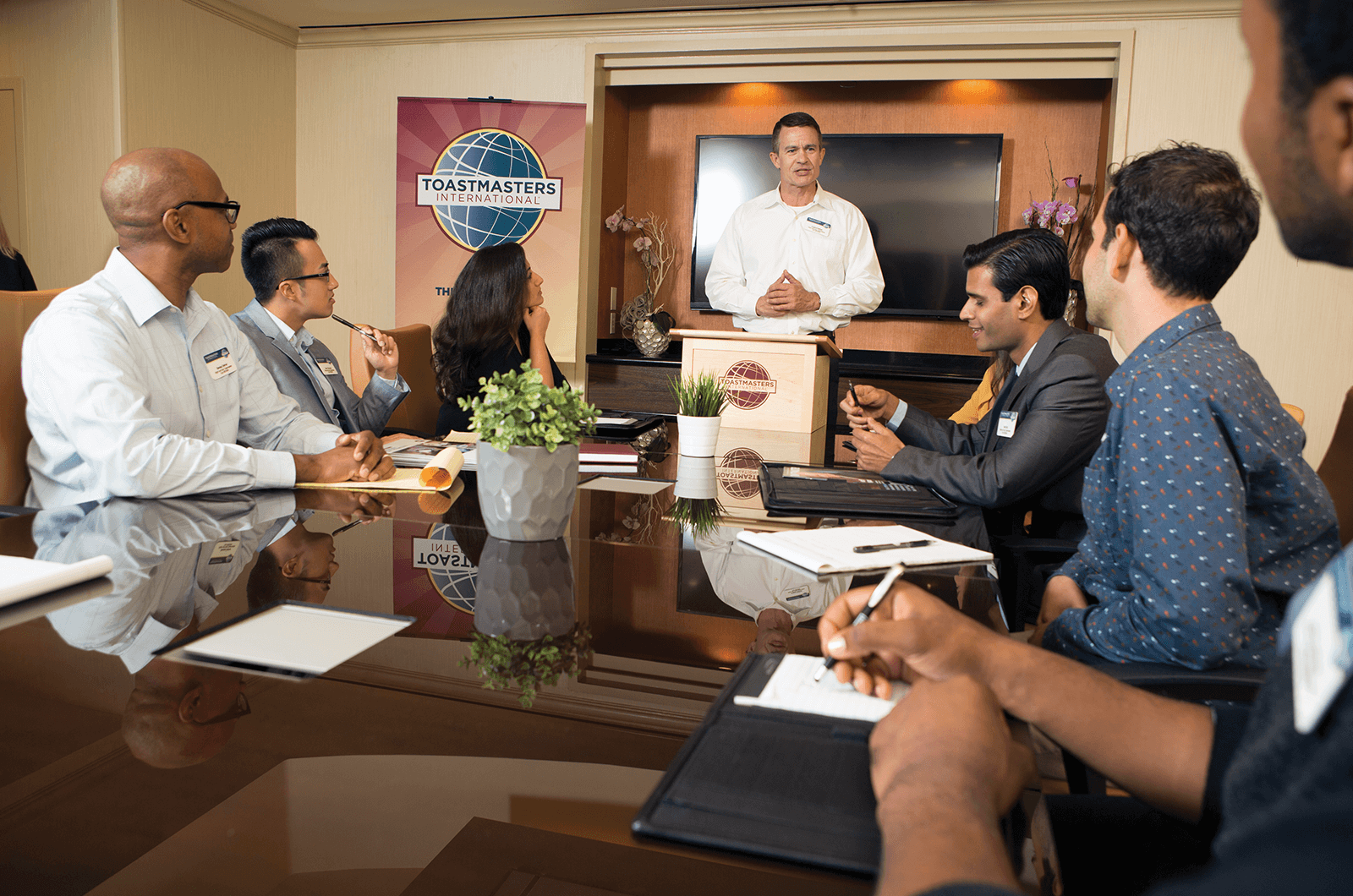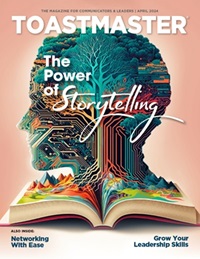
Although prepared speeches are a foundational element of the Toastmasters experience, they represent only a tiny fraction of the speaking opportunities we encounter in daily life. For all the value of becoming a better presenter, there is at least as much value in developing an ability to speak spontaneously. And of all the spontaneous-speaking skills gained in Toastmasters, I find evaluating the most valuable.
When I say “evaluation,” I am not talking about a sandwich of affirmation, tepid critique and encouragement. I’m talking about the ability to dig in, say something significant, make a strong argument and help someone improve. This is the heart of what public speaking—and leadership—is about.
Yes, it is important that you provide a civil response. But your civility should be in service to the fundamental point you want to make, not the other way around. Your critique should have teeth.
I recently attended an elaborate meeting during which a business proposal was being discussed. The presenters were well prepared and had many visual aids to help them make their case. But halfway through their presentation, they came to a slide with financial details of the deal that differed dramatically from what had been the understanding prior to that point. When I raised the issue, I was civil and constructive in recognizing their effort and professionalism. But my purpose wasn’t to be civil—it was to make it abundantly clear this issue needed to be urgently addressed.
Use Your Safety Net
Toastmasters meetings are safe—the respect and support in a club meeting are almost palpable. Everyone in the room is there to develop speaking and leadership skills, while at the same time supporting you in developing yours. Take advantage of that safety and take some risks. Dig deeper when giving critiques of the speeches you hear.
This will provide twin benefits: Not only will you give better evaluations in the club setting, you will also become a better evaluator in other areas of life. Such a skill will serve you when you find yourself in a contentious community hearing, an important business meeting, a consequential courtroom session—moments when you need to take an unequivocal stand.
Write an Evaluation for Yourself
When I joined Toastmasters, I was daunted when evaluating experienced speakers. Did I really need to run through a checklist of body language, vocal variety, eye contact and message content for these polished presenters? And even if I did, who was I to tell them how to improve when their skills were so much better than mine?
“Of all the spontaneous- speaking skills gained in Toastmasters, evaluating is the most valuable.
I pondered this through my early months as a member, steadfastly avoiding giving evaluations to advanced members. But then I got an idea: Every time I finished giving a speech in my club, I sat down and filled out an evaluation form for myself. Don’t get me wrong—I’ve received some great feedback from my fellow Toastmasters, but some of the very best feedback I’ve received has come from my own self-evaluation.
When you think about it, this makes sense. When preparing a speech, I have a vision of what I want to achieve, what challenges I am facing and how I intend to overcome those challenges. I am the ultimate authority on my speech.
The fact that I find my self-evaluation so helpful made me wonder if I could somehow apply that strategy when evaluating other speakers. As I listened to other speakers, I wondered, If it were my speech, how would I improve it?
As a writer, my early evaluations had a distinctly editorial quality. I might recommend a stronger introduction, better transitions, more examples or even a bit of levity to break up the tension—all issues that could be resolved through writing. Then, as my skill at public speaking evolved, I gradually expanded my range of feedback beyond writing, to other facets of public speaking, such as presentation style and stage presence. Personalizing my feedback in this way has worked for me. By explicitly basing my evaluations on my experience, I increased my authority, and therefore my insight.
Get It Down
Of course, not all evaluations are spoken. After a recent speech, I received an evaluation slip telling me that an anecdote I shared was funny. I knew that I’d tried to be funny, but in this case, a club member who I know to have a strong and natural sense of comedy affirmed the quality of my humor. This was meaningful to me!
On the flip side, I am sometimes surprised at how people don’t embrace the challenge of written evaluations. I can’t tell you how many times I get unsigned evaluation slips in my club after giving a speech. Anonymity hardly serves either the evaluator or the speaker.
Evaluate the Evaluators
Then there’s the role of General Evaluator. At the end of our meetings, the General Evaluator steps up to report on the meeting as a whole, which includes evaluating the evaluators who spoke at the meeting.
The General Evaluator’s reports at my club tend to be good, noting and reviewing the ways in which evaluations were successful. But I’d offer the same suggestions to General Evaluators as to speech evaluators: Realize that this is a leadership skill. Offering up more concrete feedback to the evaluators would serve not only them but the General Evaluator and the club as a whole.
Each day presents opportunities to engage the people around us and offer our honest opinions and ideas. Every word we utter may not be warm and fuzzy, but if a solid evaluation helps someone improve their skills, we are doing our part as thorough evaluators. So be yourself and take some chances.
Dan Strum is director of NY Smarts, a language school in New York City that aims to help international professionals advance their careers through mastery of the English language. “We can only engage our audience if we relate to their interests. And we can only relate to their interests when we explicitly consider who they are.”


 Previous
Previous
 5 Tips For Effective Feedback
5 Tips For Effective Feedback
 Previous Article
Previous Article

